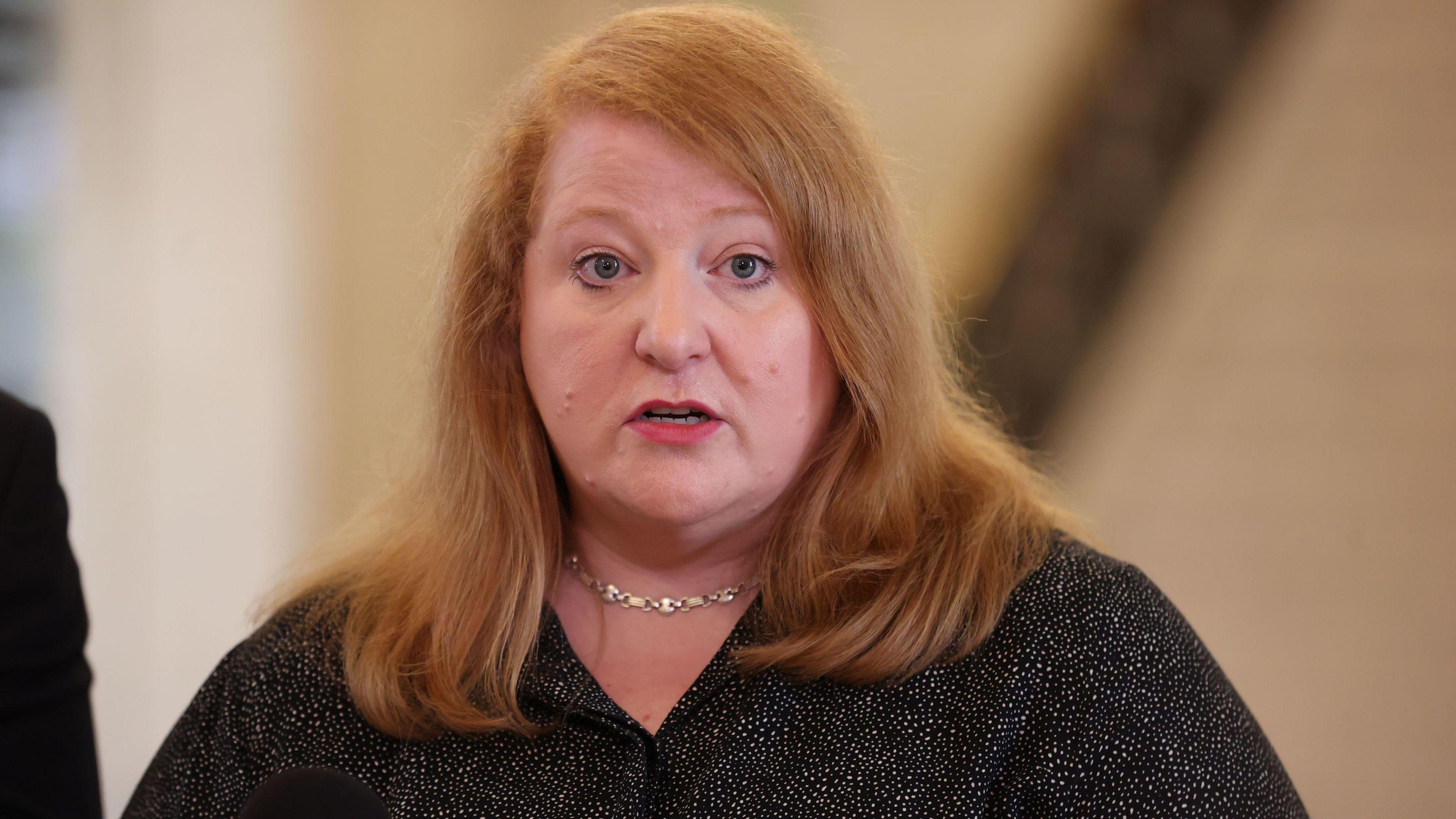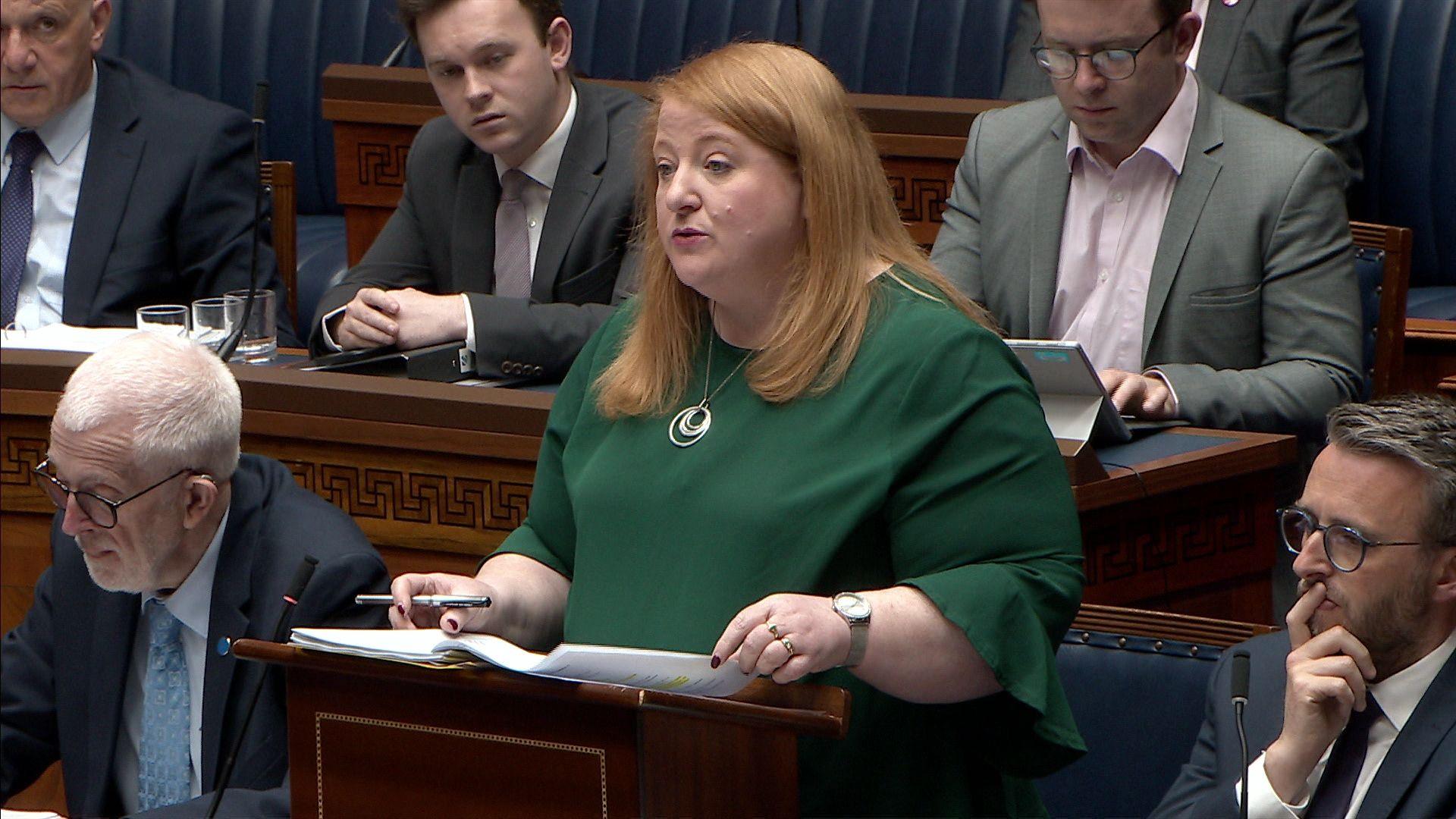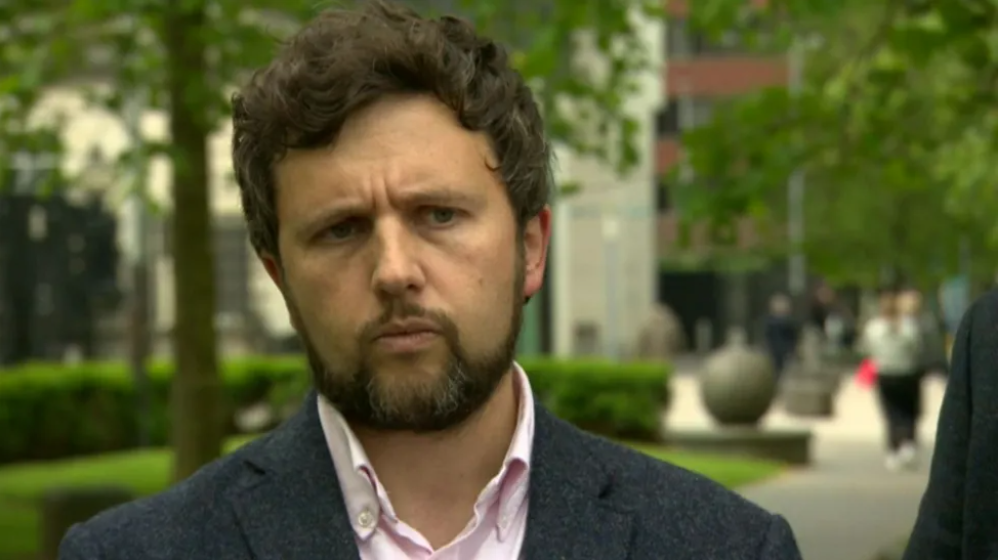Minister denies misleading assembly over sex law

Naomi Long said she would take time to consider the "complex and detailed" judgment
- Published
Justice Minister Naomi Long has rejected claims she misled the Northern Ireland Assembly over a law that granted anonymity to sex offence suspects.
She was speaking after a High Court judge ruled the Stormont legislation was not compatible with human rights or press freedom.
The law granted anonymity for life - and for 25 years after death - to people suspected of sexual offences who were not charged.
Mrs Long denied the act was "rushed through" the assembly and said she would "carefully consider" whether to appeal the judgment.
Media organisations jointly sought to have sections of the Justice (Sexual Offences and Trafficking Victims) Act (Northern Ireland) 2022 declared legally invalid.
It was argued during a judicial review that victims of sexual assault could be jailed if they publicly named their suspected abusers.
The court also heard the law, which came into effect in 2023, meant that suspects could not publicly deny allegations.
At Belfast's High Court on Friday, Mr Justice Humphreys said the relevant sections were "not law" and failed to strike a fair balance between suspects' rights to privacy and press freedom.
Speaking in the assembly on Monday, Mrs Long said she would take time to consider the "complex and detailed" judgment.
"Appeal is therefore always an option. However I will want to carefully consider all my available options, and in conjunction with the department's legal team, before arriving at a decision to the best way forward," she said.
'Double down on bad law'
Matthew O'Toole, leader of the opposition in the assembly, said an appeal would "just double down on bad law and be a waste of public money".
The Social Democratic and Labour Party (SDLP) assembly member said "while the intentions may have been good, it is important to recognise that this has been terrible law".
Joanne Bunting, chair of the assembly's justice scrutiny committee, said there had been "reputational damage for the minister, her department and indeed this house".
The Democratic Unionist Party assembly member said "significant unintended consequences" were missed because Stormont "rushed and sacrificed quality for quantity".
She asked if officials "did not know the potential ramifications, did they not understand, or did they mislead?".
Mrs Long said "neither I nor my officials misled this assembly in any way - not in any way".
The Alliance Party leader said the relevant provisions of the bill were included at its introduction.
"They were neither hidden, nor was there any failing on my part or that of the department," she added.
The minister also said she did not accept claims that "legislation was rushed through in the last political mandate".
She said "while it was a challenging period for all, no processes were condensed".

Justice Minister Naomi Long speaking in the Stormont assembly
The legislation had been passed by assembly members following a review carried out by retired judge Sir John Gillen.
Although Sir John recommended a prohibition on identifying those under investigation for sexual crimes prior to being charged, his report did not suggest extending anonymity beyond their deaths.
Traditional Unionist Voice leader Jim Allister claimed the minister had "walked the assembly into this folly, not least by exaggerating" Sir John's proposals.
Mrs Long said she "did not walk the assembly into anything".
She denied Sir John's position had been "exaggerated", saying he considered the legislation "entirely consistent with his report".
Media organisations involved in the legal challenge included the BBC, The Irish News, Mediahuis - which publishes the Belfast Telegraph - and The Times' publisher News Group Newspapers.
Ruling on the challenge, Mr Justice Humphreys said the law imposed a "chilling effect" on public interest journalism.
He said the legislation was not in accordance with law and that the assembly had acted outside "the margin of appreciation afforded to it in this field".
Related topics
- Published31 May 2024

- Published28 September 2023
